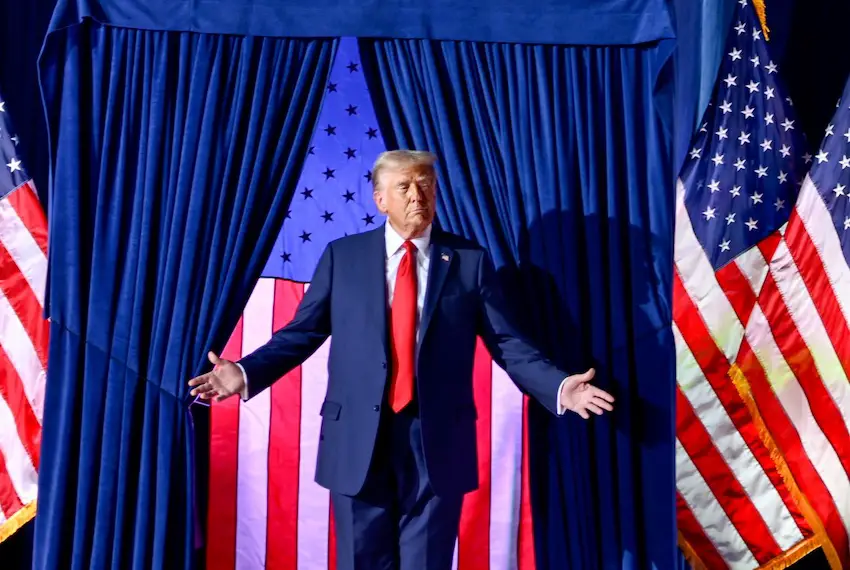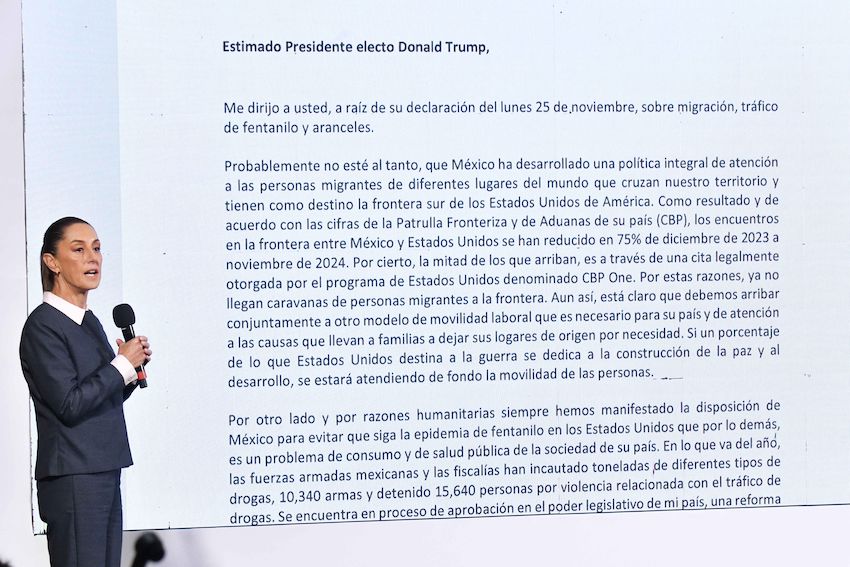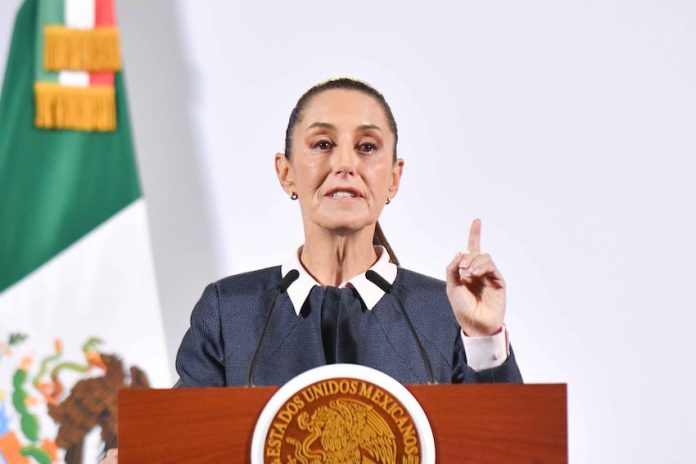President Claudia Sheinbaum’s first priority at her Tuesday morning press conference was to respond to Donald Trump’s threat to impose a 25% tariff on all Mexican and Canadian exports to the United States on the first day of his second term as U.S. president.
“Before moving on to the issue of health care, I want to share with you, with everyone that’s watching us, a letter that I’m sending today to President-elect Donald Trump,” Sheinbaum said.

The president read out her entire letter, which in its penultimate paragraph said that a U.S. tariff on Mexican exports would be met with a Mexican tariff “in response.”
(Click here to read Mexico News Daily’s report on Trump’s latest tariff threat and Sheinbaum’s response.)
During her Q&A session with reporters later in her mañanera, Sheinbaum said she believed that Mexico would reach an agreement with the United States to stave off the 25% tariff Trump pledged to impose on Mexican exports to the U.S.
Imposition of tariffs is senseless, Sheinbaum asserts
After a reporter described Sheinbaum’s plan to impose a retaliatory tariff on U.S. exports to Mexico as “potent,” the president expressed confidence that Mexico and the United States would reach an agreement to avert the 25% duty promised by Trump — as occurred during the first Trump administration.
“I have a vision that there will be an agreement with the United States and with President Trump,” she said.
“What we want to say in the letter, and what we’re going to demonstrate tomorrow in more detail, is that raising tariffs on Mexico — which would also mean raising tariffs on this side [of the border] — would lead to … hurting companies that work in Mexico and the United States,” Sheinbaum said.
“And there are United States companies that have been in Mexico for decades,” she said.
“… What we’re saying today is what is the sense of having tariff upon tariff upon tariff when in the end that will lead us to a loss of competitiveness in North America,” Sheinbaum said.

(Mario Jasso/Cuartoscuro)
The president also said that the Mexican government would provide “information” to the United States about the “very significant” efforts it has made to stem the flow of both migrants and narcotics across the Mexico-U.S. border.
A letter for Trudeau, too
Sheinbaum told reporters that she would also send a letter on Tuesday to Canadian Prime Minister Justin Trudeau, who said last week that Canada “may have to look at other options” beyond the trilateral USMCA free trade pact because of the “decisions and choices that Mexico has made” with regard to Chinese investment.
In her letter to the Canadian leader, the president said she pointed out that Canada imported electric vehicles (EVs) from China worth US $1.6 billion last year.
Canada’s outlay on Chinese EVs in 2023 — before the Canadian government imposed a 100% tariff on those vehicles — showed “exponential growth,” Sheinbaum said.
“In the case of Mexico it’s much less,” she said.
Referring again to the content of her letter to Trudeau, Sheinbaum said that Chinese investment in Mexico’s auto sector is much lower than United States and Canadian investment in the same sector.
Between 2006 and 2024, U.S. and Canadian companies invested more than $33.35 billion in Mexico’s auto sector whereas Chinese investment totaled just $590 million, she said.
Sheinbaum asserted that the data on Canada’s importation of Chinese EVs in 2023 and the comparatively low levels of Chinese investment in Mexico’s auto sector is not widely known.
She said that “of course” Mexico has a relationship with China, but stressed that it favors trade with countries with which it has a free trade agreement, such as the U.S. and Canada.
Sheinbaum said last Friday that her government is aiming to reduce reliance on Chinese goods via an import substitution plan.
By Mexico News Daily chief staff writer Peter Davies ([email protected])
